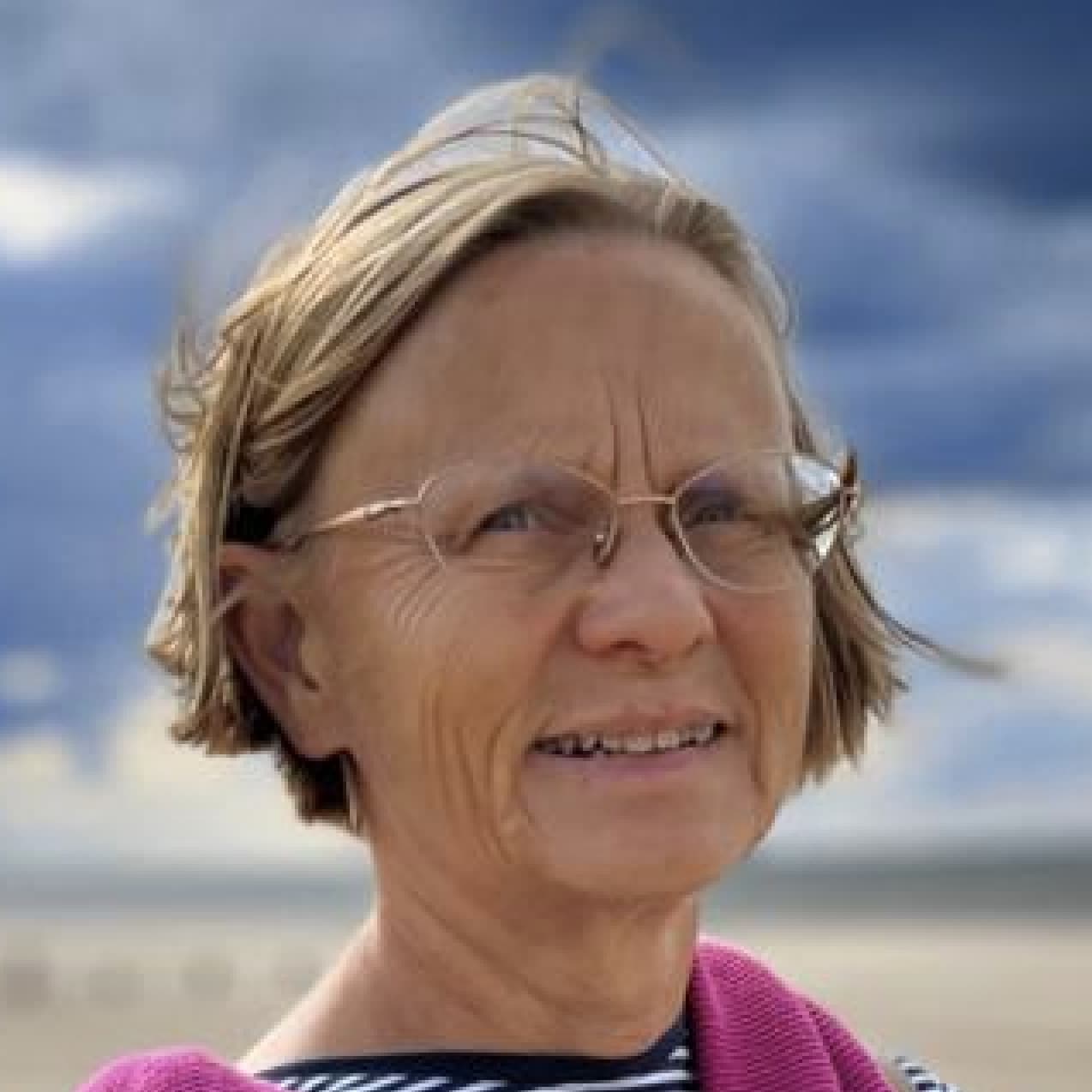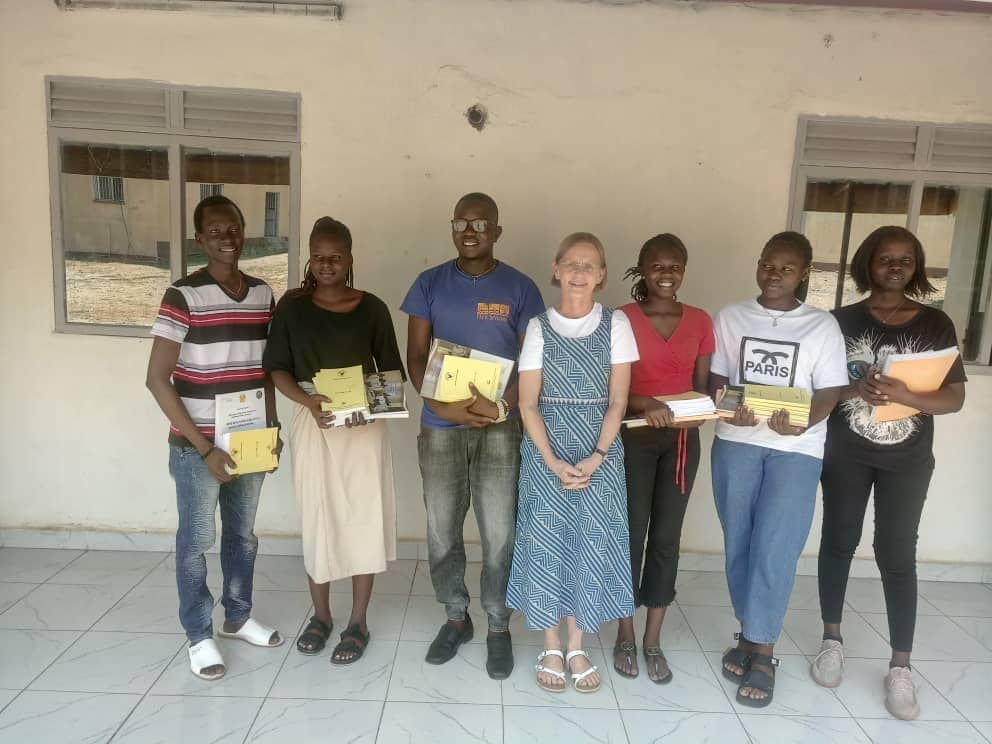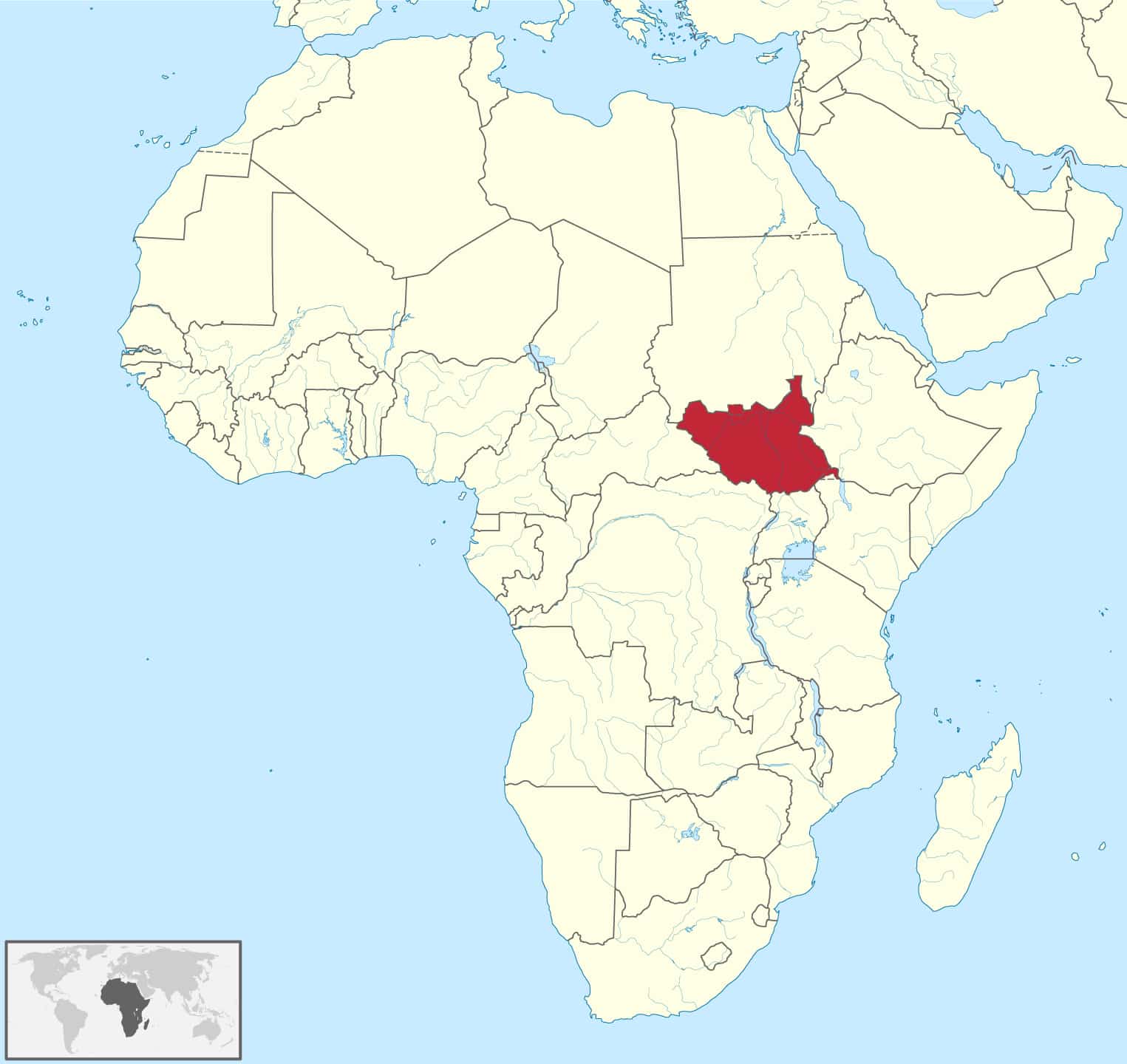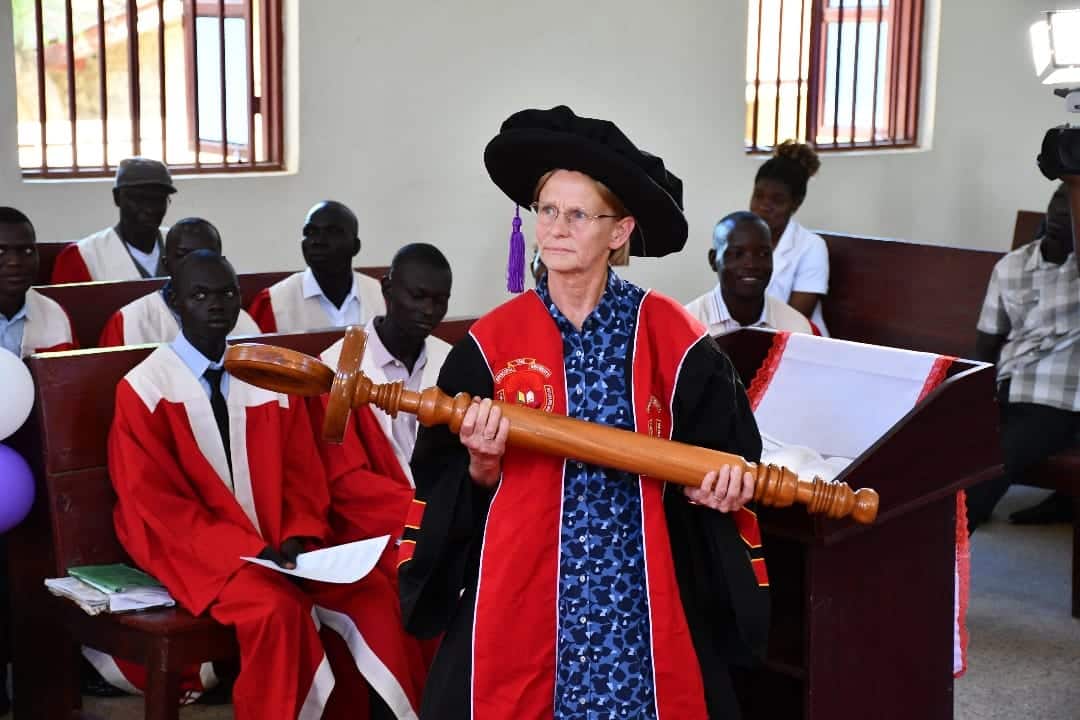
A winding path from one of the oldest universities in the world to one of the newest

Graduating in 1979 with a BA in Chemistry, I didn’t really know what to do next – so took what seemed the ‘easy option’ at the time, and pursued a DPhil in Organic Chemistry, thanks to a scholarship from Christ Church. A brief postdoc stint in the US led to teaching in Addis Ababa University Ethiopia. This was at a time when the country was ruled by a socialist dictator, Mengistu Haile Mariam. In 1984, thanks to the courageous reporting of Michael Burke, the extent of the horrors of war and famine were unveiled to the rest of the world. It was days before this broadcast that my husband and I were taken captive by rebel forces in the north of the country – to be released 6 weeks later – with a deep sense of our lives changed by the experience.
Some years later, we completed our career change when a small Christian charity entrusted us with their work in refugee camps in Eastern Sudan. During these five years, our two children were born and we learned a lot! Fast forward to 2010, when, teaching at a theological college (by then I had done a master’s in theology), the opportunity arose to forge a link with one of the colleges in South Sudan. I jumped at the chance and took several groups of Anglican ordinands to South Sudan.
One thing leads to another, and I accepted the invitation by the Archbishop of South Sudan to assist with a feasibility study for establishing a church foundation university. Throughout its history the Episcopal Church of South Sudan has been at the forefront of education and peacebuilding, running schools and engaging in conflict resolution. Building a multi-campus university that brings together its further education colleges seemed a logical next step. I have been involved with the University ever since, founding and chairing the UK charity ECSSSUP while continuing my various full-time roles with the Church of England, and a second doctorate in Divinity. Having lived and worked in Sudan decades ago, this was a welcome opportunity to re-engage with a country and people I loved.
By way of background, South Sudan is the world’s newest nation. Having gained independence from Sudan in 2011, five decades of civil war have taken their toll. Literacy still stands at only 25%; 63% of schoolteachers are unqualified; 2.8 million children are not at school, and 1.7 million are malnourished. Understandably, international development focuses on primary and secondary education, and provision for basic needs. But the chronic shortage of university places constitutes a looming crisis: this year over 5,000 young people eligible to enter university had nowhere to go. The few young people whose families can afford it, may go to universities in neighbouring countries, but the majority are left frustrated and vulnerable to criminality and perpetuating tribal conflicts.
University education has the power to shape a nation: in South Sudan, it is a catalyst for recovery from conflict and a building block for long-term civic development. It needs investment in education that is holistic, graduating students who understand the need for justice, freedom, and transparency.
The church’s vision became a reality in 2022 when the Ministry of Higher Education granted The Episcopal University (TEU) the status of a Private University. In September 2023, TEU admitted 32 law and 18 theology students, with other courses to be added over time.

In September 2023, at the invitation of the University’s Chancellor, Archbishop Justin Badi, I accepted the role of Vice Chancellor. The staff of the University are remarkable in their tenacious commitment to bringing TEU’s vision to fruition. Working under tough conditions this is a group of people fuelled by the belief that “a better tomorrow begins today” – the University’s motto and raison d’être. There could be no better way to end my working life, to serve these people and this country – to use the privilege I had of studying in one of the world’s oldest and best universities to leading one of the newest.
To find out more, visit www.ecsssup.org and www.teu.edu.ss.
Contact me, eeva.john@teu.edu.ss if you are interested in supporting this work or getting involved.
Dr Eeva John (née Lehtonen)
Vice Chancellor
The Episcopal University
Juba, South Sudan
